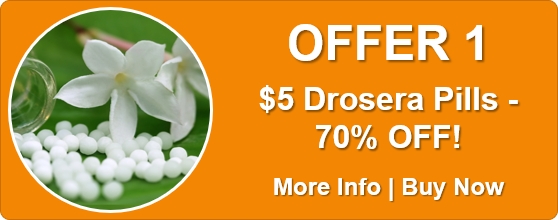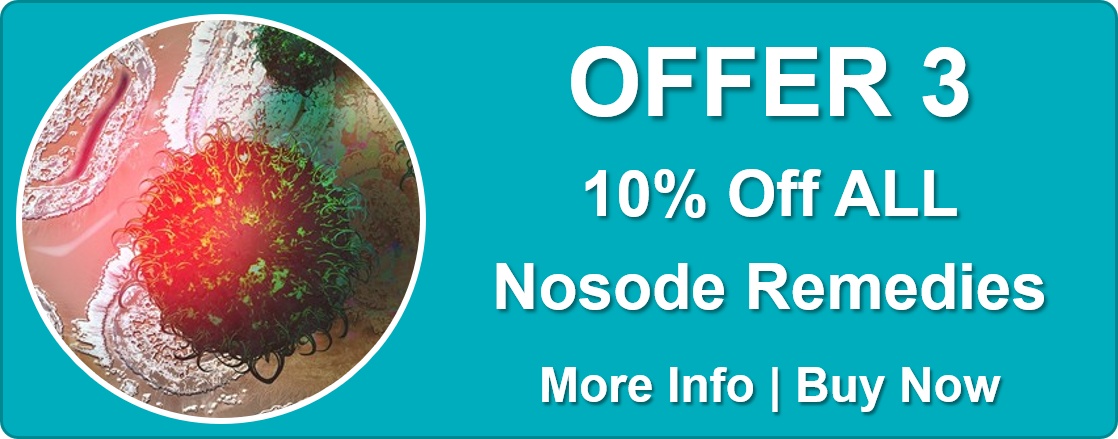Know Your Remedies: Apis Mellifica (Apis.)
 Common Names: Western honey bee, European honey bee.
Common Names: Western honey bee, European honey bee.
General Information
Apis treats symptoms similar to those of a bee sting – swelling, burning, prickling, stinging, and redness. They may be from a bite, sting, allergic reaction, or joint inflammation and are relieved by cold applications and worsened by warmth or pressure. The sufferer is often thirstless, restless, and possibly awkward or clumsy.
Insect Bites and Bee Stings / Allergic Reactions
- Rapid swelling with itching, stinging, prickling pains.
- Painful swellings are relieved by cold applications and feel worse for heat.
- Pink, waxy, transparent swellings.
- Elevated, white wheals / hives / urticaria
- Nettle-type rash.
- Swollen lips and tongue.
- Rapid doses of Apis can be given during severe allergic reactions or anaphylactic shock when there is rapid swelling and difficult breathing while seeking or waiting for emergency help.
Eye Problems
- Swollen lids, especially bottom ones, from allergy or inflammation.
- Red, burning, sore eyes that are better for cold applications and worse for heat.
- Sensitive to light.
Sore Throat
- Splinter-like pains on swallowing.
- Large, smooth, swollen tonsils.
- Pain better for cold drinks.
Cystitis and Bladder Problems
- Burning pain during urination.
- Last drops burn and sting.
- Retention of urine in newborns.
- Acute kidney failure.
Joint Problems
- Swollen, hot, and inflamed joints.
- Pain and swelling better for cold applications and worse for warmth.
For Pets
- Insect bites and stings.
- Acute kidney failure, especially in cats, in which little urine is passed.
- Swollen, hot joints.
Where do I find it?
Apis Mellifica (Apis.) is available from our online store as a single remedy, and as part of the Bites and Stings Complex (combination remedy).
Home Treatment Guidelines
Acute, Self-Limiting Conditions
Conditions like colds or minor injuries, which are short-term and typically improve on their own, can be managed at home with homeopathy. However, in emergencies or if symptoms worsen, contact your healthcare provider.
Chronic Conditions
These home treatment instructions do not apply for ongoing issues, whether mentioned above or not, like persistent allergies or chronic pain. You should consult a qualified homeopath for a personalized treatment plan to achieve the best results with homeopathy for chronic conditions.
How to Take the Remedy for Acute Conditions
- Take one pill or five drops of the remedy. The frequency depends on symptom severity. As examples:
- For life-threatening symptoms, take every 1 minute and seek emergency help immediately.
- For mild symptoms, take every 4 hours.
- Stop taking the remedy once you feel better. Resume if symptoms return.
- If no improvement after four doses, choose a different remedy or consult a professional homeopath.
- For more details on dosing, refer to: How Often to Dose with a 30C Homeopathic remedy.
- For information on the different potencies, read: Guidelines on which potency to use
Additional Notes From Past Masters
Homeopathy is a 200-year-old system of medicine. Early homeopaths recorded detailed notes on how remedies worked, including initial tests, remedy relationships, and their experiences. These writings were shared to improve homeopathic practice and now offer fascinating insights into past uses of homeopathy. Here’s an example, edited and modernised for clarity, from Leaders In Homoeopathic Therapeutics (1898) by E. B. NASH M.D.:
Leaders In Homoeopathic Therapeutics by E. B. NASH M.D.
Burning, stinging pains (like bee stings); eyelids; throat, panaritium or felon, haemorrhoids, ovaries, (especially right one), breasts (mastitis), skin (erysipelas, urticaria, carbuncles).
Great oedema; general or local (face, ears, eyelids, especially lower); throat (diphtheria); genitals (especially scrotum); skin (erysipelas and urticaria); everywhere; general anasarca, abdomen. These oedemas are accompanied with the characteristic pains, or no pain at all.
Stupor, with sharp, sudden, shrill cries in brain disease (crie encephalique).
Thirstlessness, especially in dropsies and during heat of intermittents.
Skin alternately dry and perspiring.
Suffocative; feels as if every breath would be his last, especially in dropsical conditions or hot stage of intermittents.
Modalities: < after sleep, on touch (very sensitive), from heat and warm room; > cold room or air and cold applications.
Bad effects from suppressed or retrocedent exanthemata; measles, scarlatina, urticaria.
Involuntary diarrhoea, with sensation as if anus were wide open.
* * * * *
It seems to me that in this remedy also the leading characteristic is to be found in its sensation-burning, stinging pains. They are sharp and quick, like the sting of the bee.
These pains are as characteristic of this remedy as are the itching-like chilblains of Agaricus, or the burnings of Arsenicum and Sulphur; but the burning of Apis are relieved by cold, while those of Arsenic are relieved by heat.
The stinging appears in many diseases, and kinds of tissue. In the serous membranes or the brain coverings, when we get those “shrill, sudden piercing screams”-“cri cerebrale,” which attend such dangerous affections as hydrocephalus, cerebro-spinal meningitis and typhus cerebralis, Apis is the remedy.
Again we get these pains in the mucous membranes, as in the throat and haemorrhoids, and the burning is almost always more or less present at the same time. It is also found very prominent in the ovaries. It has proved a very valuable remedy in cancers, even open ones, when this stinging, burning pain was present; also in panaritium.
I have seen rapid cures follow its exhibition in felon. Hering put it -“redness and swelling with stinging and burning pain in the eyes, eyelids, ears, face, lips, tongue, throat, anus, testicles.” (> by cold applications ought to be added).
So we see how generally the system comes under the action of this remedy. In skin affections, especially the acute exanthems, this is the grand leading symptom, and is especially indicated in affections of the brain and meninges caused by a sudden suppression of skin diseases.
The next general condition for which this remedy seems to be as near specific as any remedy can be is an infiltrated cellular tissue; and oedematous or dropsical condition. This condition obtains almost from the beginning of inflammatory affections and extends to the stage of exudation, and even to chronic dropsical states.
In those intensely violent and rapid cases of diphtheria in which the whole throat fills right up with oedematous swelling, the vulva hanging down like a transparent sac filed with water (Kali bichromicum, Rhus toxicod.), and the patient is in imminent danger of death by suffocation from actual closure of the throat and larynx, there is no remedy like Apis.
The stinging, burning pains may be present in these cases; or what is more dangerous still, because there is no complaint until the case is far advanced, is an absolutely painless condition, Baptisia has painlessness in throat affections, but the swelling is not so rapid as Apis, and there is no oedema.
A number of years ago I was called to Watkins Glen, N. Y., in consultation in a very bad case of diphtheria. One had already died in the family and four lay dead in the place that day. Over forty cases had died in the place and there was an exodus going on for fair.
Her attending physician, a noble, white-haired old man, and withal a good and able man, said, when I looked up to him and remarked I was rather young to counsel him: “Doctor, I am on my knees to anybody, for every case has died that has been attacked.” The patient was two rooms away from us, but I could hear her difficult breathing even then.
Apis was comparatively a new remedy then for that disease, but as I looked into her throat I saw Apis in a moment, and a few questions confirmed it. I told the doctor what I thought and asked him if he had tried it. He said, no he had not thought of it, but it was a powerful blood poison; try it. It cured the case, and not one case that took this remedy from the beginning, and persistently, died. It was the remedy for the genus epidemicus. See my report of this in Vol. XII, Hahnemannian Monthly.
This oedematous condition of Apis may be found in almost any part of the body, but is especially prominent in mouth and throat, eyelids and face, around the eyes (Phosphorus, whole Face); lower lids hang down like bags of water. (Kali carb., upper lids). In erysipelas the swelling of the skin is of this oedematous appearance, and generally with stinging pains.
Sometimes the oedema increases until it forms large blister-like bags of water.
The dropsical effusion may be general or local. It is found in the thoracic cavity, in ovaries, in abdominal cavity, scrotum, and genitals of females. One peculiar symptoms which helps to choose between it and other remedies in dropsy is the almost absolute absence of thirst (with thirst, Acetic acid, Arsenic and Apocynum).
I will now, in addition to what I have written, call attention to some particular affections and symptoms in which Apis should be remembered.
A very important symptom not yet mentioned is tenderness or sensitiveness to touch, as if bruised. This is particularly true in the abdominal, uterine, and ovarian regions, but is not by any means confined there, for we may find the whole surface of the body exceedingly sensitive to touch: even the hair seems sore (China officinalis). The condition is often found in cerebro-spinal meningitis and is a strong indication for Apis. In erysipelas this tenderness is often present, and is found under Hepar sulphur, as well as Apis.
The sleep of Apis is either very restless, or in brain diseases there is deep stupor, interrupted occasionally by piercing screams. Never forget Apis then.
In all inflammatory affections and in intermittent fevers, if you find the patient alternately dry and hot, or perspiring, think again of Apis.
No remedy has this alternation so strong as Apis. Sensation as if every breath would be his last is very characteristic, and occurs not only in dropsical troubles of the chest, but seems also to be a nervous symptom.
In scarlatina Apis is especially indicated if the eruption is retarded or retrocedent and serious brain troubles result, and it is no less efficacious in post-scarlatinal dropsies if the symptoms do not indicate some other remedies.







